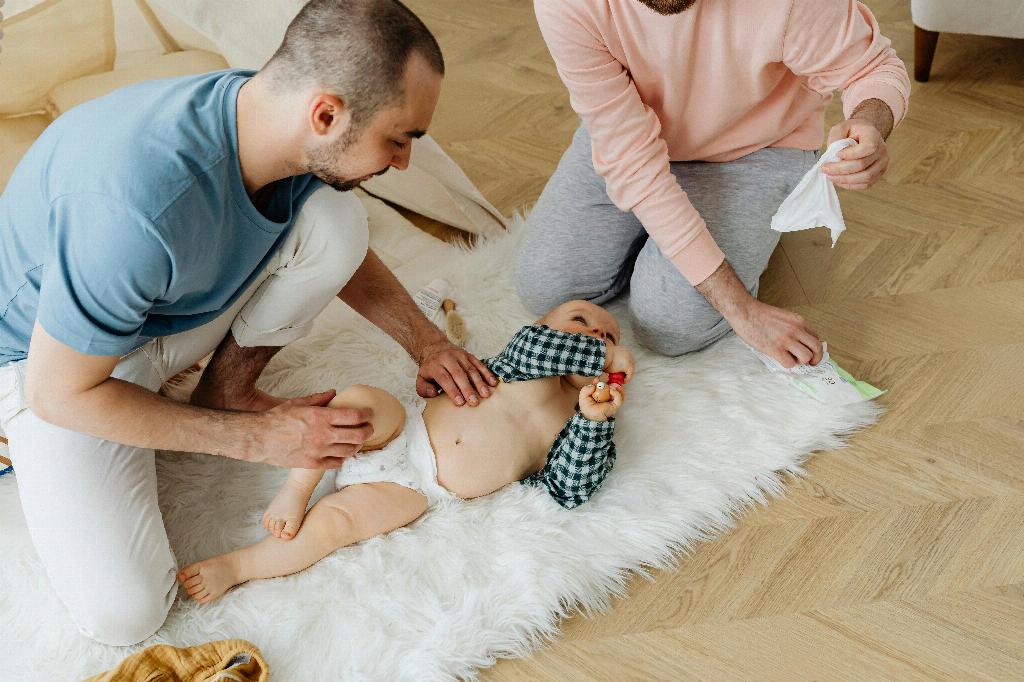When it comes to the question of whether it’s acceptable to allow a baby to sleep in a soiled diaper, there are various factors to consider. As a parent or caregiver, your primary concern is always the well-being and comfort of the child. This dilemma can often arise in situations where the baby has dirty their diaper close to bedtime or nap time. Let’s delve into the nuances of this issue to arrive at a thoughtful and informed decision.
Health Considerations
From a health standpoint, letting a baby sleep in a poopy diaper is generally not advisable. Prolonged exposure to urine and feces can increase the risk of skin irritation, diaper rash, and even urinary tract infections. The moisture and bacteria in a soiled diaper create an environment conducive to skin issues, which can be uncomfortable and painful for the baby.
Quality of Sleep
Another aspect to contemplate is the quality of sleep the baby may experience with a dirty diaper. While some babies may not be immediately bothered by a wet or soiled diaper, the discomfort can escalate over time and disrupt their sleep. Regularly changing the diaper before sleep can contribute to a more restful and uninterrupted sleep for the baby.
Parental Judgement
Ultimately, the decision of whether to change a baby’s diaper before sleep depends on the parent’s judgement of the situation. If the baby has recently dirtied their diaper and is settling down for a long sleep, it is advisable to change the diaper to prevent any potential skin issues. However, if it is a short nap or the baby shows no signs of discomfort, allowing them to sleep for a brief period in a wet diaper may be acceptable.
Social Norms and Practices
It’s important to acknowledge that cultural norms and practices regarding diaper changing vary across different societies and may influence parental decisions. While some cultures prioritize frequent diaper changes to maintain cleanliness and hygiene, others may adopt a more relaxed approach based on tradition and beliefs.
Diaper Absorbency and Comfort
The absorbency and comfort of the diaper itself also play a significant role in this scenario. High-quality, absorbent diapers can help keep the baby’s skin dry and prevent rashes, making it more tolerable for the baby to sleep in a clean diaper for an extended period.
Monitoring Baby’s Comfort
Observing the baby’s cues and behavior is crucial in determining whether they are bothered by a wet or dirty diaper. Babies may exhibit signs of discomfort such as irritability, fussiness, or excessive crying when their diaper needs changing. Responding promptly to these signals is essential for the baby’s well-being.
Hygiene and Infection Prevention
Ensuring proper hygiene practices, including regular diaper changes and thorough cleaning of the diaper area, is fundamental in preventing diaper-related infections and skin conditions. Leaving a baby in a poopy diaper for an extended period can compromise their skin health and make them more susceptible to infections.
Consulting Healthcare Professionals
If you are uncertain about whether it is appropriate to let your baby sleep in a poopy diaper or have concerns about their skin health, consulting a healthcare professional or pediatrician can provide valuable guidance and reassurance. Healthcare providers can offer expert advice tailored to your baby’s specific needs.
Personal Preferences and Routines
Every parent has their unique preferences and routines when it comes to caring for their baby. Some parents may opt for frequent diaper changes to maintain cleanliness and comfort, while others may adjust their approach based on their baby’s individual needs and habits. It’s essential to find a routine that works best for both the baby and the parent.
Conclusion
In conclusion, while there may be instances where allowing a baby to sleep in a poopy diaper is deemed acceptable under certain circumstances, prioritizing the baby’s health, comfort, and well-being should be a paramount consideration. Regular diaper changes, attentive monitoring of the baby’s cues, and maintaining good hygiene practices are essential aspects of ensuring the baby’s overall welfare.

